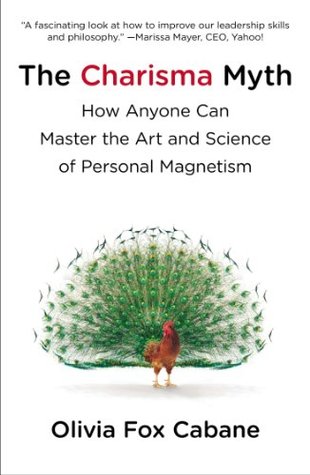More on this book
Community
Kindle Notes & Highlights
Read between
May 2 - May 19, 2022
Multiple concurring studies indicate that charismatic people receive higher performance ratings and are viewed as more effective by their superiors and subordinates. 2
As extensive research in recent years has shown, charisma is the result of specific nonverbal behaviors, 5 not an inherent or magical personal quality.
The equation that produces charisma is actually fairly simple. All you have to do is give the impression that you possess both high power and high warmth, since charismatic behaviors project a combination of these two qualities.
Presence is the single most requested aspect of charisma when I’m coaching executives.
Three quick tips to gain an instant charisma boost in conversation: Lower the intonation of your voice at the end of your sentences. Reduce how quickly and how often you nod. Pause for two full seconds before you speak.
CHARISMATIC BEHAVIOR CAN be broken down into three core elements: presence, power, and warmth.
We may think that we can fake presence. We may think that we can fake listening. We believe that as long as we seem attentive, it’s okay to let our brains churn on other things. But we’re wrong. When we’re not fully present in an interaction, people will see it. Our body language sends a clear message that other people read and react to, at least on a subconscious level.
Being present means simply having a moment-to-moment awareness of what’s happening. It means paying attention to what’s going on rather than being caught up in your own thoughts.
As you’ve noticed, staying fully present isn’t always easy. There are two main reasons for this. First, our brains are wired to pay attention to novel stimuli, whether they be sights, smells, or sounds. We’re wired to be distracted, to have our attention grabbed by any new stimulus: It could be important! It could eat us!
The second reason is that our society encourages distraction. The constant influx of stimulation we receive worsens our natural tendencies. This can eventually lead us into a state of continuous partial attention, in which we never give our full attention to any single thing. We’re always partially distracted.
The very next time you’re in a conversation, try to regularly check whether your mind is fully engaged or whether it is wandering elsewhere (including preparing your next sentence). Aim to bring yourself back to the present moment as often as you can by focusing on your breath or your toes for just a second, and then get back to focusing on the other person.
Being charismatic does not depend on how much time you have but on how fully present you are in each interaction.
Warmth, simply put, is goodwill toward others. Warmth tells us whether or not people will want to use whatever power they have in our favor. Being seen as warm means being perceived as any of the following: benevolent, altruistic, caring, or willing to impact our world in a positive way. Warmth is assessed almost entirely through body language and behavior; it’s evaluated more directly than power.
Both power and warmth are necessary conditions for charisma. Someone who is powerful but not warm can be impressive, but isn’t necessarily perceived as charismatic and can come across as arrogant, cold, or standoffish. Someone who possesses warmth without power can be likable, but isn’t necessarily perceived as charismatic and can come across as overeager, subservient, or desperate to please.
Striving to acquire external charisma skills without learning how to handle your internal world is like adding pretty balconies to a house with a weak foundation. It’s a nice touch, but at the first earthquake everything falls apart.


